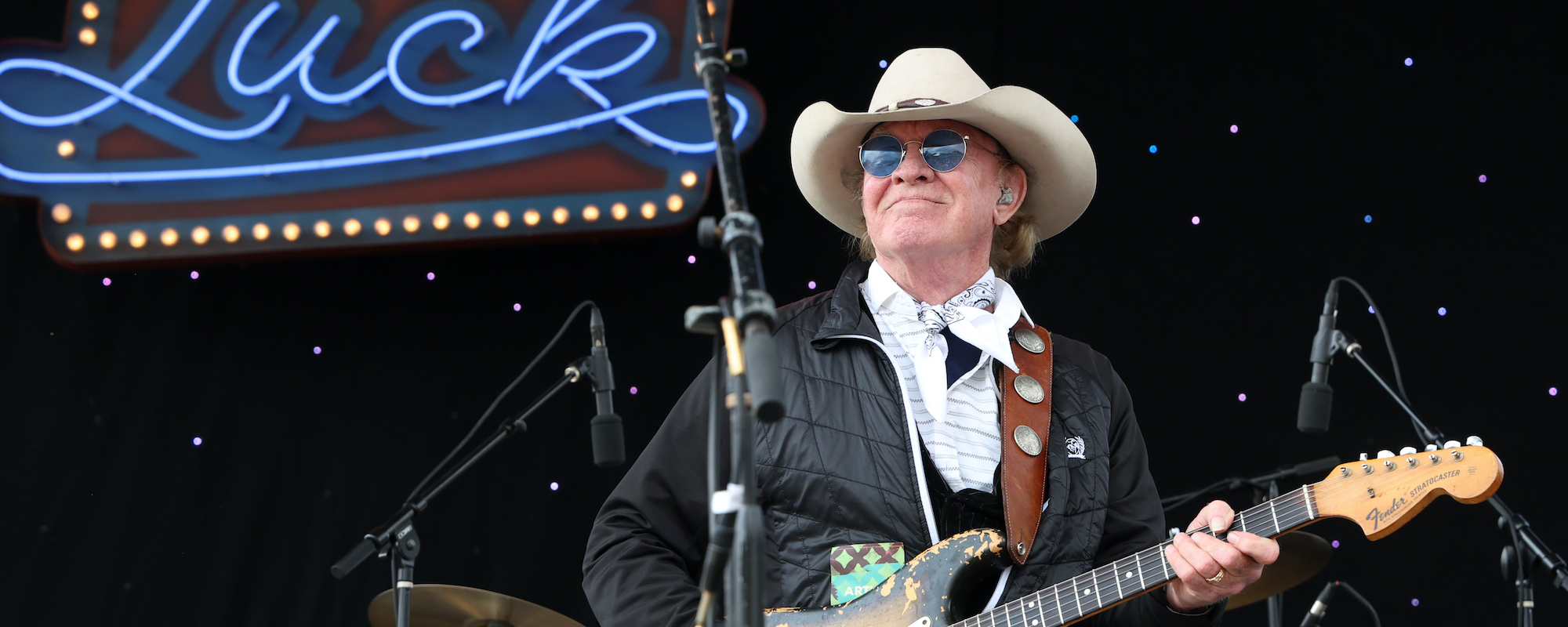Kenny O’Dell had success as a performer, but he will be more remembered for his songwriting. Charlie Rich had success as a songwriter but will be better remembered as a singer of other’s songs. Rich burst onto the scene in Memphis in 1960 with a song he wrote and sang called “Lonely Weekends.” It peaked at No. 22 on the Billboard Hot 100. He spent the next decade trying to match the success of that first hit. Record producer Sam Phillips called him “the most talented musician I’ve ever seen.”
Videos by American Songwriter
Rich bounced from label to label, stopping at Hi, Groove, RCA, and Smash. Producers all believed in the singer, but chart success eluded him. Then, he signed with Epic Records and began working with producer Billy Sherrill. He released a single called “I Take It On Home,” written by O’Dell. It reached No. 6 on the Billboard Country chart. The next song, also by O’Dell, would change the singer’s career. Let’s take a look at the story behind “Behind Closed Doors” by Charlie Rich.
Watergate
When the daily news was consumed with the scandal surrounding the Nixon administration’s attempts to cover up its involvement in the June 17, 1972, break-in of the Democratic National Committee headquarters at the Watergate Office Building in Washington, D.C., O’Dell kept hearing the phrase, “Behind closed doors.” In 2018, he told Bart Harbison of the Nashville Songwriters Association International, “They’re always talking about no one knows what goes on behind closed doors. Having the sessions, another session, behind closed doors. And I’m thinking, I like the title, ‘Behind Closed Doors.”
My baby makes me proud, Lord, don’t she make me proud
She never makes a scene by hanging all over me in a crowd
‘Cause people like to talk, Lord, don’t they love to talk
But when they turn out the lights
I know she’ll be leaving with me
O’Dell Plays Rhythm Guitar on the Recording
The songwriter knew Sherrill was looking for a hit song for Rich to record. He told Harbison how he got the song to Rich: “Well, Billy Sherrill was producing him, and they were trying to get a huge hit, and things weren’t working out very well. … I took it to Billy, and I had his ear at the time.”
O’Dell told Tom Roland in The Billboard Book of Number One Country Hits: “It was just a title I had written down, and I had a little guitar riff that I’d carried with me for a couple of years. The chorus was pretty much a little deviation on that.”
And when we get behind closed doors
Then she lets her hair hang down
And she makes me glad that I’m a man
Oh, no one knows what goes on behind closed doors
“The Together Dynamic”
Hargus “Pig” Robbins played the iconic piano part, Tommy Allsup played tic-tac bass, Henry Strzlecki was on electric bass, Jerry Cardigan played the drums, Billy Sanford was on electric guitar, and Pete Drake played the steel guitar. Sherrill’s longtime engineer, Lou Bradley, worked on the session. He shared his memories with singer/songwriter Otis Gibbs in 2016:
“There’s an interaction between the players. When they’re hearing each other live and looking at each other in the eye. I call it a together dynamic that you can’t get any other way but that way. You can make a really good-sounding record with earphones, and everybody isolated in their own little room or overdubbed after the fact, building a record that way. It’s going to sound good, but that little spark, I call it the together dynamic. If you recorded the old big bands, with horn bands, like Glenn Miller and stuff like that, if you recorded all of that separate, the dynamics they’d play in would play together, and then you did a multitrack recording of the same thing and made each section play separate, or each horn player. You could instantly hear the difference when you played the two. One would be all live because they’re feeling it off each other.”
My baby makes me smile, Lord, don’t she make me smile
She’s never far away or too tired to say I want you
She’s always a lady, just like a lady should be
But when they turn out the lights
She’s still a baby to me
He Made a Great Song a Monster
Bradley remembered how a couple of lines needed to be changed: “What you heard was a credited hit-writing songwriter who took some constructive criticism from somebody that he trusted and respected, Billy Sherrill. Billy said, ‘The last verse needs to be stronger.’ The original lyric almost led you to believe they went behind closed doors and held hands. It was a little milder. For the life of me, now, I can’t remember what two lines they changed. Kenny O’Dell went to school on what Billy asked him to do, and he made a great song a monster because it made that last verse stronger.”
‘Cause when we get behind closed doors
Then she lets her hair hang down
And she makes me glad that I’m a man
Oh, no one knows what goes on behind closed doors
Behind closed doors
Just What Rich Needed
The follow-up to “Behind Closed Doors” was even more successful. “The Most Beautiful Girl” sold 5 million copies and also hit No. 1 on the Billboard Hot 100.
After “Behind Closed Doors” became a big hit, Bradley encountered O’Dell in the alley behind the studio. He asked him what he was doing with all of that money he made from the record. Bradley said O’Dell replied, “I’m paying for nine years of poverty.”
Added Bradley, “‘Behind Closed Doors’ sold a million and a half copies. The album sold 10 million, eventually. It was a good album for Charlie Rich and Billy Sherrill. I was working for wages. But, that’s what I was here for, you know?”
When you purchase through links on our site, we may earn an affiliate commission.
Photo by David Redfern/Redferns













Leave a Reply
Only members can comment. Become a member. Already a member? Log in.